Revolutionising Thai education with gamification techniques
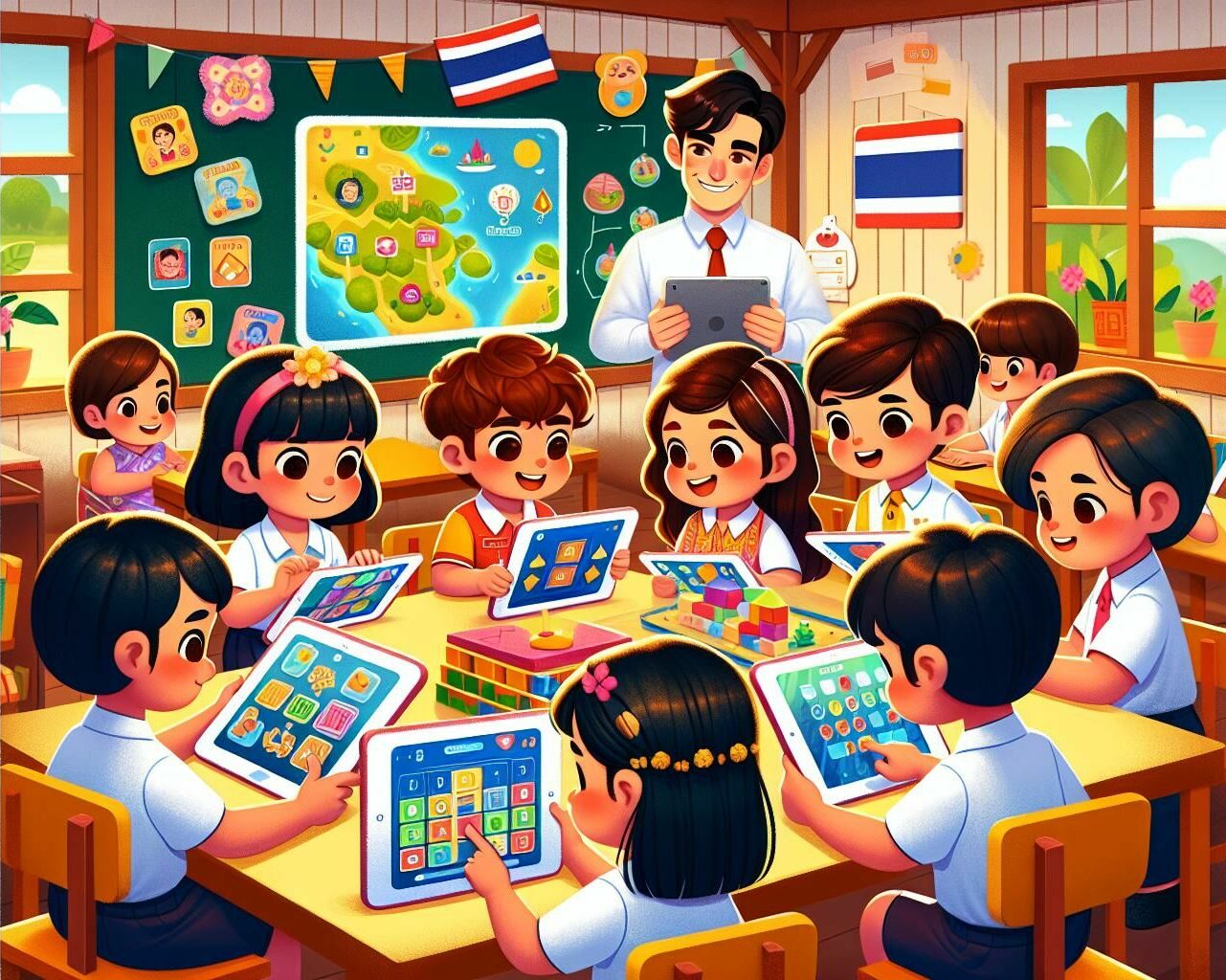
In the heart of Southeast Asia, Thailand is leading a transformative approach to education through the gamified learning revolution. This innovative strategy merges the thrill of gaming with the rigour of educational content, making learning not just interactive but immensely engaging. As digital platforms become increasingly integral to the educational landscape, Thailand’s educators are harnessing the power of gamification to revolutionise how students learn, interact, and stay motivated.
Understanding gamification in education
Gamification in education is a transformative approach that combines the engaging elements of video gaming with academic content, and it’s making significant strides in Thailand. By introducing game-like features such as point scoring, earning badges, and leaderboard rankings to reward students’ achievements, this method redefines traditional classroom environments. It creates a dynamic and interactive learning experience that positions education as both competitive and enjoyable, motivating students to exceed their own records.
This educational strategy leverages the universal desire for recognition and appreciation, thereby revolutionising the traditional learning model into something akin to an exciting game. Its success in Thailand underscores its effectiveness in boosting student engagement. Turning education into ‘edutainment,’ a fusion of education and entertainment, encourages students to view their lessons not as mandatory tasks but as intriguing challenges.
Evidence from Thailand highlights the significant benefits of gamified learning on student motivation and achievement, particularly in subjects considered difficult, like English language learning. This shift towards enthusiastic participation reflects substantial improvements in both interest and proficiency among learners.
Thailand’s innovative use of gamification in education showcases how modern technological developments can be utilised to enhance learning experiences for today’s digital-savvy generation. This novel approach promises to reshape educational practices globally by making learning an enjoyable adventure for students.
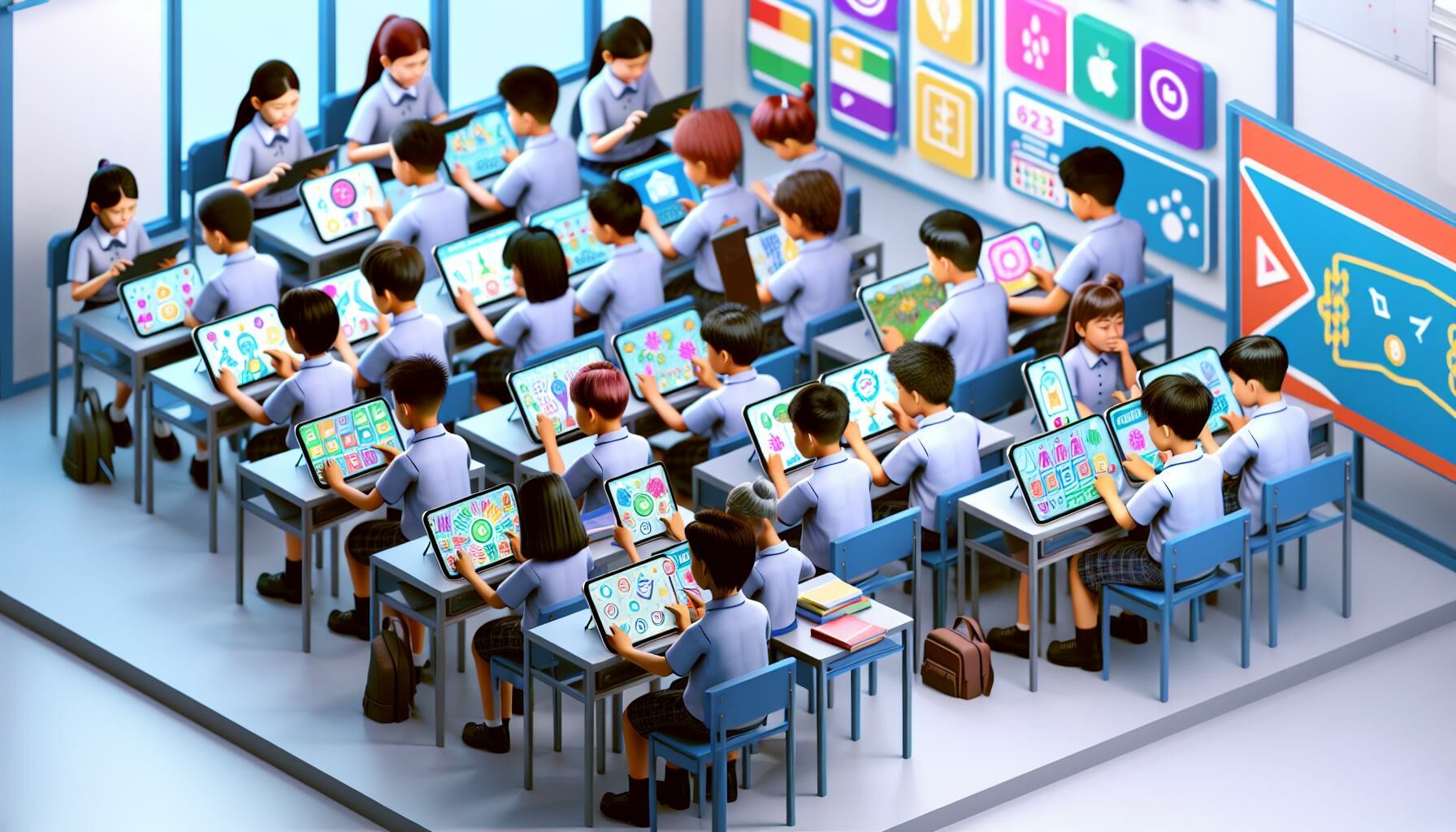
The symbiotic relationship between technology and education
In Thailand, the incorporation of technology into education has taken a significant leap forward, especially with the adoption of gamified learning techniques. This innovative approach transforms traditional classroom settings into dynamic and engaging environments by integrating game elements such as points, badges, and leaderboards. These features not only make learning more interactive but also encourage a competitive yet positive atmosphere among students.
The use of gamification in Thailand’s educational sector highlights the potent combination of technology and education. By leveraging digital tools and game-based strategies, educators can communicate more effectively with today’s learners, making academic content more appealing. Research supports the idea that gamification leads to higher engagement levels and improved memory retention among students.
Gamified learning marks a significant shift towards integrating technology with traditional educational practices. Thailand’s success in this field demonstrates the substantial benefits that technological advancements can bring to educational outcomes. Globally, this progress is seen as a harbinger of future advancements in teaching and learning techniques.
Benefits of gamification in education
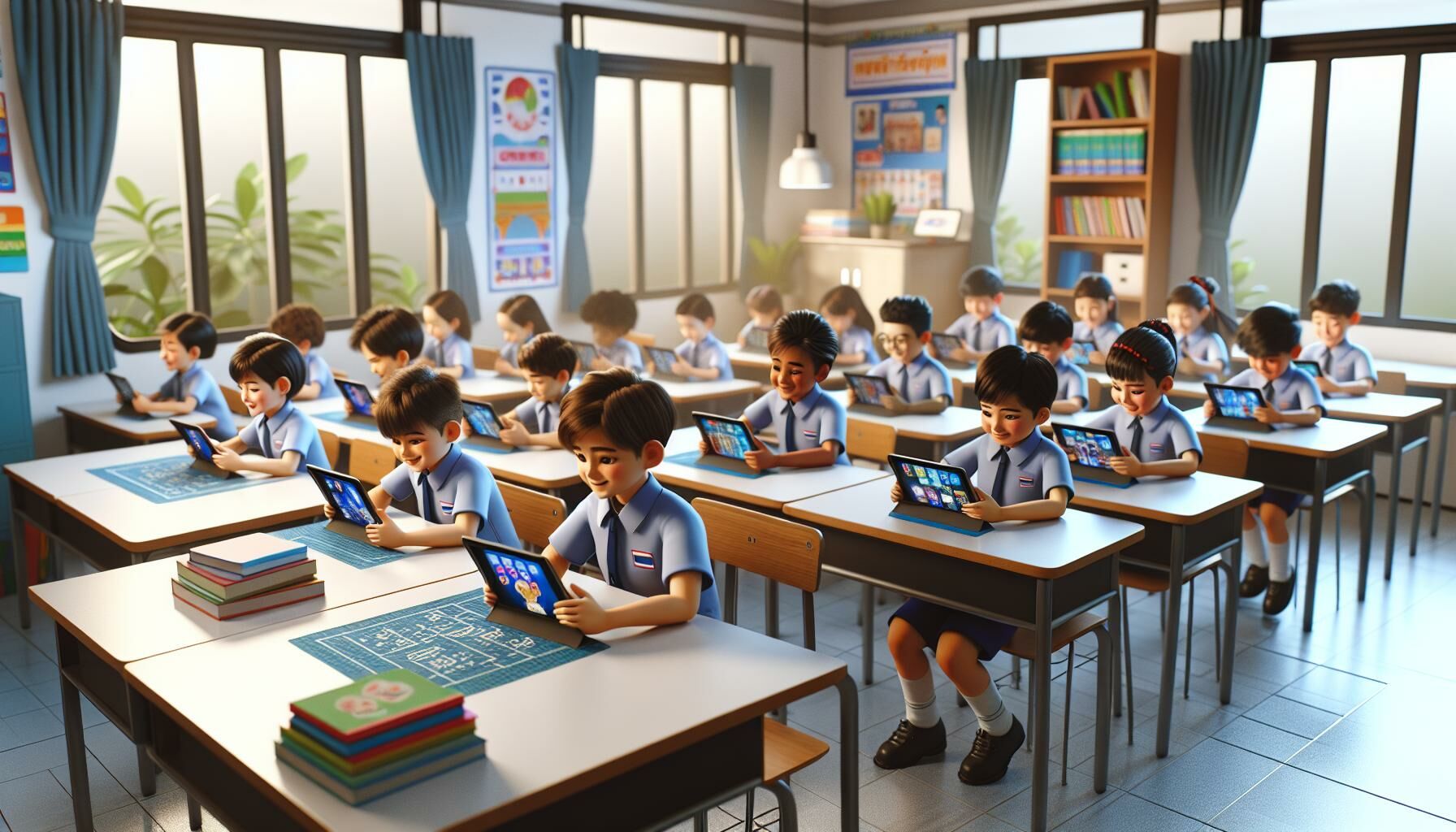
Increased engagement and motivation
Gamification in education transforms traditional lessons into interactive experiences. Thailand’s approach to gamified learning leverages points, badges, and leaderboards, directly impacting student motivation. Students feel a sense of achievement and recognition, encouraging them to engage more deeply with the content. This method taps into the competitive spirit, making learning activities compelling and enjoyable.
Fostering collaboration and social learning
Utilising game-based elements fosters an environment where students are inclined to collaborate. In Thailand, education through gamification promotes teamwork and peer-to-peer learning, which are essential for developing social skills. Group challenges and leaderboards encourage students to work together, sharing knowledge and strategies to achieve common goals. This collaboration enhances the learning experience, making it richer and more diverse.
Personalised learning paths
Gamified learning represents an innovative approach to education, emphasising personalised learning experiences. In Thailand, educational institutions are increasingly incorporating game-based tools to monitor student progress effectively. This strategy enables educators to identify areas where students excel and those requiring additional support. The primary objective is to tailor individual learning paths, optimising strengths and addressing weaknesses. Consequently, gamified learning enhances engagement and motivation among learners, making the educational process more dynamic and beneficial for all participants.
Skill development and application
Incorporating gamification into Thailand’s education system significantly enhances students’ acquisition of essential life skills. This approach facilitates improved problem-solving abilities, decision-making processes, and strategic planning. Beyond merely excelling academically, these competencies are invaluable in real-world scenarios, equipping students for the myriad of challenges and opportunities they will encounter outside the academic environment.
Data-driven insights for educators
Gamification provides educators with valuable, data-driven insights. The performance of students within these gamified environments generates a wealth of information. Teachers can analyse this data to understand learning patterns, engagement levels, and areas of difficulty. Armed with this knowledge, educators can adapt teaching methods and content to maximise learning outcomes.
Overcoming challenges and enhancing retention
One of the standout benefits of gamification in education is its ability to overcome learning barriers. The engaging nature of gamified learning helps maintain student attention and interest, which is crucial for enhancing information retention. In Thailand, the use of gamification has shown promise in reducing dropout rates and improving attendance by making learning more appealing and less daunting to students.
Through these benefits, Thailand demonstrates that integrating gamification into education is not just a trend but a transformative approach. It creates a dynamic learning environment that motivates, engages, and prepares students for the challenges of the future.
The gamified learning experience in Thailand
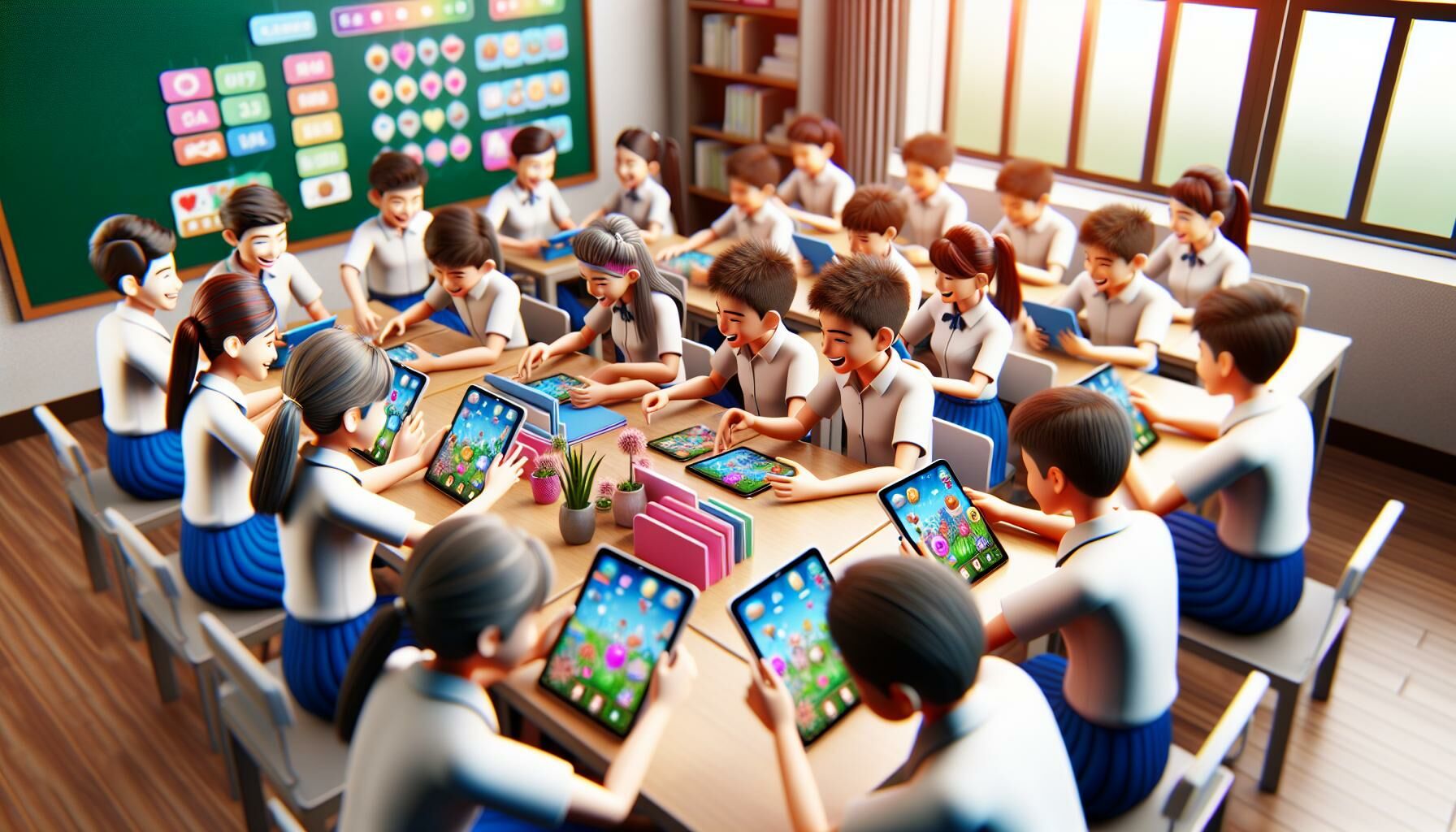
How gamification in Thai Education is being implemented in schools and universities
In Thailand, the integration of gamification into education has marked a turning point in teaching strategies in both schools and universities. This innovative approach entails incorporating game elements such as points, levels, and challenges into the learning process. Schools across Thailand are adopting this methodology to create a more engaging and interactive learning environment. Teachers use digital platforms and apps that offer personalised quests and rewards for completing academic tasks, fostering a sense of accomplishment among students.
Universities haven’t been left behind in this gamified learning revolution. They leverage sophisticated gamification systems that track student progress in real-time, allowing for immediate feedback and adjustment of learning paths. These systems often include social elements, enabling students to work in teams and compete in a healthy, academic-oriented manner. Such implementations have not only increased attendance rates but also improved overall student performance.
Examples of successful gamified learning initiatives across Thailand
In Thailand, an innovative approach has been adopted to enhance the English learning process through gamification. This method involves an application that rewards users with points and levels up their proficiency in English. Designed with real-life scenarios and role-playing games, this app makes learning both engaging and effective. It allows learners to track their progress, set personal challenges, and deeply engage with the language.
Moreover, this strategy extends beyond language acquisition. Some educational institutions in Thailand are also applying gamification techniques to mathematics education. By participating in math-based adventures and solving puzzles, students can earn badges and unlock new features, significantly diminishing math anxiety and notably improving test scores.
The integration of gaming elements into educational practices in Thailand highlights the profound impact technology can have on traditional teaching methods. This shift towards more interactive learning experiences equips students with essential skills for future success, marking a significant progression in educational approaches.
Challenges and solutions
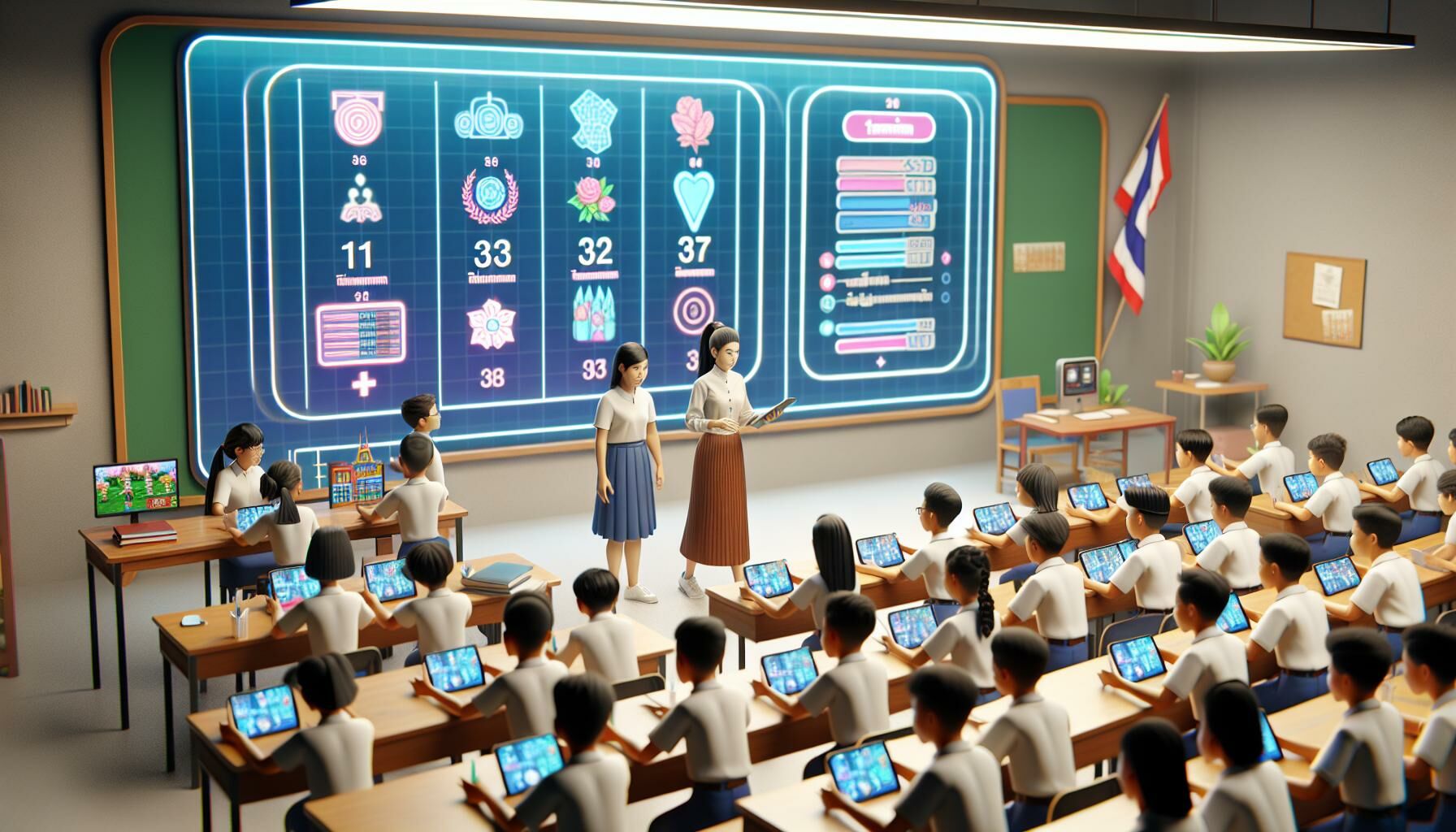
The challenges faced in implementing gamification in education in Thailand
Incorporating gaming dynamics into Thailand’s educational system faces notable challenges. Educational institutions are grappling with technological hurdles, such as insufficient infrastructure and inadequate internet speed, that impede the smooth functioning of sophisticated gamified learning platforms. Moreover, there is a significant disparity in digital literacy among educators, with many having minimal experience integrating gaming elements into teaching methods. The reluctance to move away from conventional teaching approaches also adds complexity to this integration process. Additionally, financial limitations are a key factor; acquiring the required technology and providing extensive training requires considerable investment.
Solutions and strategies Being adopted to overcome these challenges
To address these obstacles, Thailand’s educational institutions are taking innovative steps. Due to technical and infrastructure limitations, schools are partnering with tech companies to access state-of-the-art gamified platforms. This collaboration also includes training sessions for educators, bridging the digital literacy gap. Pilot projects are being launched in a phased approach, starting in urban centres with better infrastructure and gradually expanding to rural areas. To mitigate resistance to change, institutions are showcasing successful gamification case studies, demonstrating tangible benefits in student engagement and performance. Funding challenges are being tackled through government grants, external investments, and crowd-funding initiatives aimed at enhancing educational technology. By adopting these strategies, Thailand is steadily overcoming barriers, forging a path towards a gamified learning revolution.
The future of gamified learning in Thailand
Thailand’s journey towards revolutionising education through gamified learning is on an exciting path. The nation’s commitment to overcoming challenges, such as technical limitations and digital literacy gaps, highlights its determination to succeed. By collaborating with tech companies, investing in educator training, and showcasing successful implementations, Thailand is setting a precedent for how gamified learning can be effectively integrated into educational systems globally.
If you are an international student and plan to study in Thailand, please check out our article ‘Ultimate guide 2024: Thrive in Thailand as an international student.‘
Latest Thailand News
Follow The Thaiger on Google News:


























